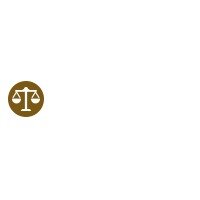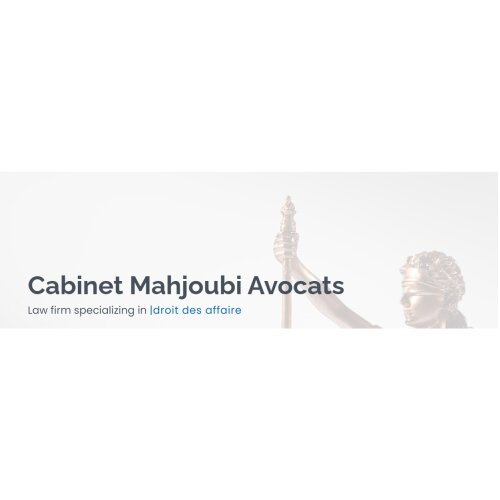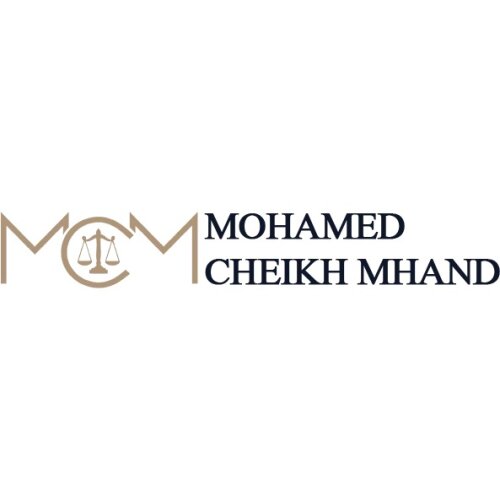Best Sanctions & Export Controls Lawyers in Morocco
Share your needs with us, get contacted by law firms.
Free. Takes 2 min.
Or refine your search by selecting a city:
List of the best lawyers in Morocco
About Sanctions & Export Controls Law in Morocco
Sanctions and export controls are legal frameworks that regulate the movement of goods, technology, and services across borders. In Morocco, these regulations are designed to align with national interests, international agreements, and the maintenance of peace and security. The law aims to ensure that trade activities do not support illegal activities, such as financing terrorism or the proliferation of weapons of mass destruction. Compliance with sanctions and export controls is essential for businesses and individuals who are involved in international trade or transactions with restricted countries or entities. The Moroccan government enforces these regulations through various ministries and official bodies, maintaining strict oversight of the import and export sector.
Why You May Need a Lawyer
Navigating sanctions and export controls can be complex, especially given the frequent updates and international influences on Moroccan law. Legal counsel is often needed in several situations, such as:
- Dealing with the import or export of sensitive goods or technologies
- Facing investigations for alleged violations of export controls or sanctions
- Understanding whether your business partners or customers are on sanctions lists
- Obtaining the correct licenses or permits for cross-border transactions
- Challenging enforcement actions or penalties related to non-compliance
- Ensuring your company’s compliance policies are up to date with Moroccan and international law
- Responding to changes in international sanctions regimes that affect your industry
Seeking advice from a qualified lawyer helps prevent costly mistakes, protects your interests, and ensures compliance with all legal requirements.
Local Laws Overview
Sanctions and export control laws in Morocco are influenced by domestic policies and Morocco’s commitments to international treaties. Key aspects include:
- Import and Export Restrictions: Certain goods, such as military items, dual-use goods (civilian and military applications), cultural artifacts, and endangered species may require special permits or be outright prohibited.
- Sanctioned Entities and Countries: Moroccan authorities maintain lists of prohibited or restricted countries, organizations, and individuals with whom trade is limited or forbidden, often in line with United Nations or other international sanctions.
- Customs Regulations: The Moroccan Customs and Excise Administration monitors the flow of goods and investigates suspicious transactions.
- Licensing Requirements: Exporters and importers may need to apply for licenses for controlled items. The type of permit depends on the nature of the goods and the destination country.
- Penalties: Violations can result in severe penalties, including fines, confiscation of goods, revocation of licenses, and even criminal prosecution.
- Reporting Obligations: Companies must keep detailed records of transactions and report certain activities to the authorities.
Being aware of these local requirements is essential for any individual or business involved in international trade from or to Morocco.
Frequently Asked Questions
What are export controls in Morocco?
Export controls in Morocco are laws and regulations that govern the export of specific goods, technologies, and software to certain destinations or end users. These controls help prevent illegal trade, protect national security, and fulfill international commitments.
Who enforces sanctions and export controls in Morocco?
The enforcement of sanctions and export controls involves several ministries, including the Ministry of Foreign Affairs, the Ministry of Economy and Finance, and the Moroccan Customs and Excise Administration, depending on the nature of the transaction and the goods involved.
Do I need a license to export goods from Morocco?
Yes, if your goods are subject to export controls or are listed as sensitive or restricted, you will need to apply for an appropriate export license from the competent Moroccan authority before shipment.
Are there penalties for violating sanctions or export control laws?
Yes, non-compliance can lead to significant penalties, such as hefty fines, seizure of goods, suspension or revocation of business licenses, and criminal charges against the responsible parties.
How can I determine if my business partner is on a sanctions list?
You can consult the lists published by Moroccan authorities, international organizations, and refer to the Ministry of Foreign Affairs for updated information on sanctioned entities or individuals.
Why do international sanctions affect Moroccan businesses?
Morocco is committed to adhering to international sanctions imposed by bodies like the United Nations. Businesses involved in global trade must respect these measures to avoid legal issues and maintain their reputation.
What goods are commonly restricted or banned for export from Morocco?
Items such as arms and ammunition, dual-use technologies, antiquities, certain chemicals, and endangered species are typically subject to strict controls or bans.
Can I appeal a decision by Moroccan customs regarding export controls?
Yes, if you believe a decision was made in error, you can appeal to the relevant authority or seek judicial review with the help of a lawyer experienced in sanctions and export laws.
How often do sanctions and export control lists change?
Sanctions and controlled goods lists can be updated frequently in response to international developments or changes in national policy. Constant vigilance and up-to-date advice are essential for compliance.
Is legal advice necessary for small businesses trading internationally?
Absolutely. Even small-scale traders can face significant legal risks if they inadvertently violate sanctions or export controls, making legal guidance crucial for all businesses engaged in cross-border commerce.
Additional Resources
If you need more information or assistance, consider contacting the following resources:
- Moroccan Customs and Excise Administration: Offers guidance on customs regulations and controlled goods.
- Ministry of Industry and Trade: Provides information on necessary permits and licenses for exporters and importers.
- Ministry of Foreign Affairs: Updates on international obligations and sanctions lists.
- Moroccan Association of Exporters (ASMEX): Resources for businesses engaged in international trade.
- Chamber of Commerce, Industry, and Services: Assistance for compliance and understanding export procedures.
- Legal Aids and Bar Associations in Morocco: Directories for finding qualified legal professionals specializing in trade law.
Next Steps
If you are involved in international trade or suspect that your activities may fall under Moroccan sanctions or export controls, here are recommended steps:
- Assess your current transactions and partners for any potential red flags or compliance risks.
- Consult relevant official resources and update your knowledge of applicable regulations.
- Seek prompt legal advice from a specialist in sanctions and export controls law to evaluate your specific situation.
- Ensure all documentation, licenses, and reporting processes are in good order and up to date.
- Implement regular training for your staff to avoid accidental violations.
- Establish clear internal compliance policies that adapt to legal changes.
- If facing an investigation or penalty, engage a lawyer immediately to protect your rights and interests.
Taking a proactive approach can help your business or personal activities remain compliant with Moroccan law and avoid unnecessary legal challenges.
Lawzana helps you find the best lawyers and law firms in Morocco through a curated and pre-screened list of qualified legal professionals. Our platform offers rankings and detailed profiles of attorneys and law firms, allowing you to compare based on practice areas, including Sanctions & Export Controls, experience, and client feedback.
Each profile includes a description of the firm's areas of practice, client reviews, team members and partners, year of establishment, spoken languages, office locations, contact information, social media presence, and any published articles or resources. Most firms on our platform speak English and are experienced in both local and international legal matters.
Get a quote from top-rated law firms in Morocco — quickly, securely, and without unnecessary hassle.
Disclaimer:
The information provided on this page is for general informational purposes only and does not constitute legal advice. While we strive to ensure the accuracy and relevance of the content, legal information may change over time, and interpretations of the law can vary. You should always consult with a qualified legal professional for advice specific to your situation.
We disclaim all liability for actions taken or not taken based on the content of this page. If you believe any information is incorrect or outdated, please contact us, and we will review and update it where appropriate.
Browse sanctions & export controls law firms by city in Morocco
Refine your search by selecting a city.

















